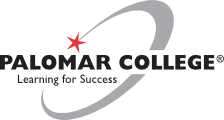
Course Outline
CE 100 - Cooperative Education
Fall Semester 2018
Basic Course Information
Courses numbered 1 - 49 are remedial or college preparatory courses which do not apply toward an A. A. Degree and are not intended for transfer. Courses numbered 50-99 apply toward an AA Degree, but are not intended for transfer. Courses numbered 100 and higher apply toward an AA Degree and/or are intended for transfer to a four-year college or university.
D - Credit - Degree Applicable
CE
Cooperative Education
Units and Hours
0.5
6
Grade/Pass/No Pass
Hour Type
Units
Weekly Hours
Semester Hours x 16 Weeks
Semester Hours x 18 Weeks
Lecture Category -
0.00
0.00
x 16 Weeks - 0.00
x 18 Weeks - 0.00
Lab Category -
0.50
2.00
x 16 Weeks - 32.00
x 18 Weeks - 36.00
Subtotal -
2.00
x 16 Weeks - 32.00
x 18 Weeks - 36.00
Out of Class Hour -
0.00
x 16 Weeks - 0.00
x 18 Weeks - 0.00
Totals -
2.00
x 16 Weeks - 32.00
x 18 Weeks - 36.00
Hour Type
Units
Weekly Hours
Semester Hours x 16 Weeks
Semester Hours x 18 Weeks
Lecture Category -
0.00
0.00
x 16 Weeks - 0.00
x 18 Weeks - 0.00
Lab Category -
6.00
18.50
x 16 Weeks - 296.00
x 18 Weeks - 333.00
Subtotal -
18.50
x 16 Weeks - 296.00
x 18 Weeks - 333.00
Out of Class Hour -
0.00
x 16 Weeks - 0.00
x 18 Weeks - 0.00
Totals -
18.50
x 16 Weeks - 296.00
x 18 Weeks - 333.00
Catalog Description
Supervised on the job training for all occupational students. Course is repeatable not to exceed a total of 16 units.
Student Learning Outcomes
Outcome
Students will be able to identify organizational objectives and contribute to the achievement of these objectives through the utilization of setting objectives, which requires a written agreement between a supervisor and employee/student, to accomplish measurable on the job learning objectives by completing work based projects involving problem solving and the application of academic theory, while undertaking new or expanded workplace responsibilities.
Upon successful completion of the course the student will be able to identify and recognize employment skills under actual working conditions and apply classroom theory to the actual work place environment.
Specific Course Objectives
Objective
Upon successful completion of the course, the student will be able to:
- Identify employment skills that are necessary for successful performance on-the-job.
- Perform new job skills or improve existing job skills under actual working conditions.
- Identify traits of the working environment that the student both likes and does not like for consideration in future employment opportunities.
- Apply concepts learned through coursework in work-based settings.
Methods of Instruction
Methods of Instruction may include, but are not limited to, the following:
Cooperative Work Experience
Content in Terms of Specific Body of Knowledge
Each semester, a student is required to formulate three specific objectives. These objectives must be written to identify new or expanded job-oriented learning. They will be reviewed and approved by the supervisor/employer and the instructor-coordinator. Objectives should be understandable, challenging, achievable, and measurable.
Assignments
Student handout which includes sequence sheet of events, requirements of Cooperative Education, manner in which learning objectives are to be determined and written, unit/work
hour breakdown, Title V regulations concerning Cooperative Education, Employer's Guide to Cooperation, and other handouts which instructors may use.
Materials at Palomar College and local libraries and at the Cooperative Education offices. Newspaper articles and instructor/department handouts.
Barlow, Laurence E. How to Sell Yourself "The Job-Seekers Bible". Lakeside, CA: VCA Publication, 2005.
Chapman, Elwood N. Work Experience Survival Kit. Pacific Palisades, CA: Goodyear Publishing Co., 2001.
Farr, Michael, et al. The Work Book; Getting The Job You Want. Indianapolis, IN: Bennett & McKnight, 2005.
Kidwell, Will, et al. Getting The Job and Knowing Yourself. St. Louis, MO: McKnight Publishers, 2000.
Schmidt, Peggy J. Making it on Your First Job. New York, NY: Avon, 2004.
Wanat, John A., et al. Cooperative Vocational Education. Chicago, IL: Chas C. Thomas Publishers, 2002.
Periodicals:
American Vocational Association. Vocational Education Journal. Washington, DC: AVA, Monthly
Supt of Documents. Occupational Outlook Quarterly. Washington, DC: Supt of Documents, Quarterly
Enrollment Application, Student Data Sheet, Worksheet of Setting Learning Objectives, Monthly Reports giving status of learning objectives, Student Follow-Up Evaluation, and Statement of Cooperation.
Students will read and follow both oral and written instructions. Compose three specific and measurable objectives that are related to their employment.
Students submit monthly reports indicating hours worked and describing progress on three learning objectives identified at the beginning of the semester. The student attends a final interview with a cooperative education instructor to discuss work during the semester.
Methods of Assessment
Evaluation Method
- Class Participation
- Class Work
- Papers
- Performance
Open Entry/Open Exit
- Not Open Entry/Open Exit
Repeatability
No
Contact Person
Jarvinen, Jason